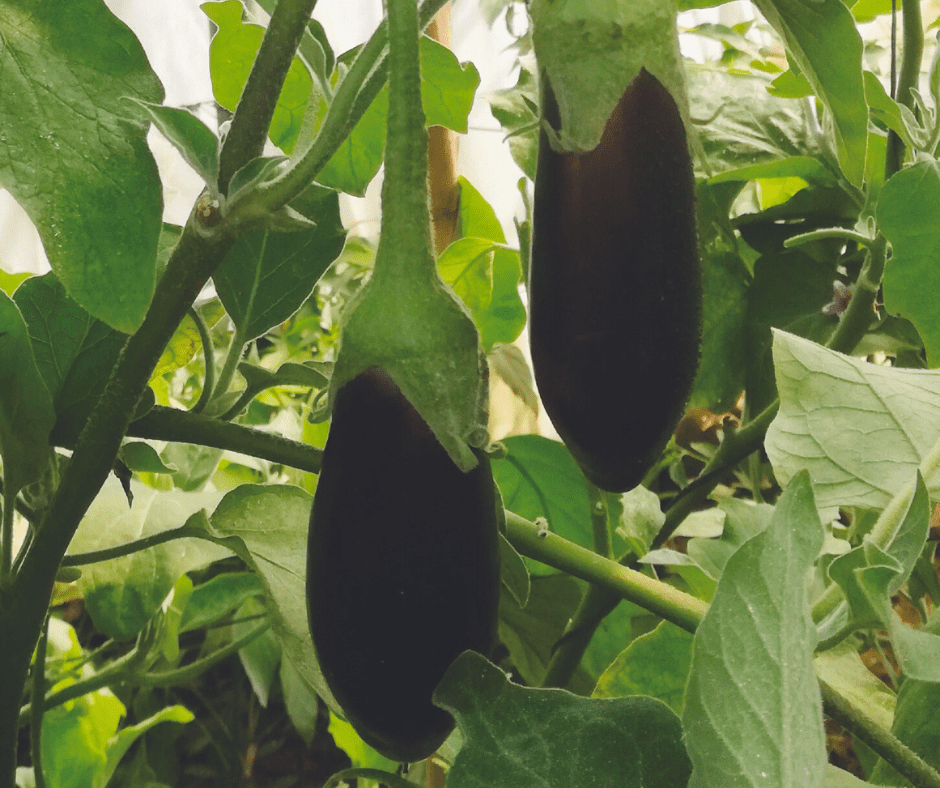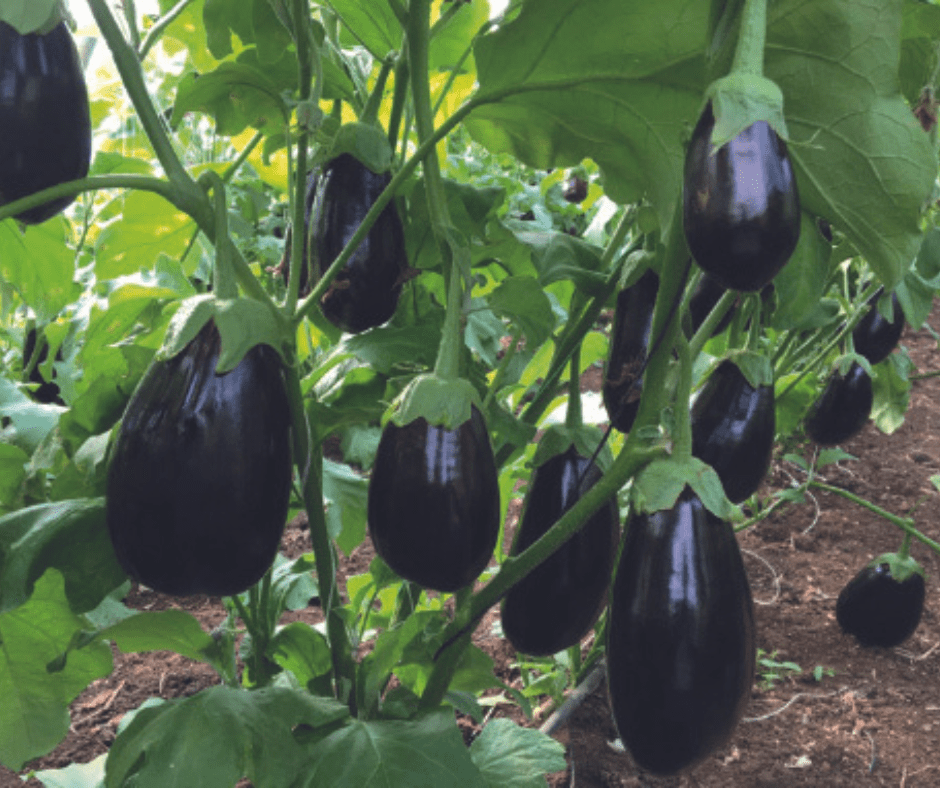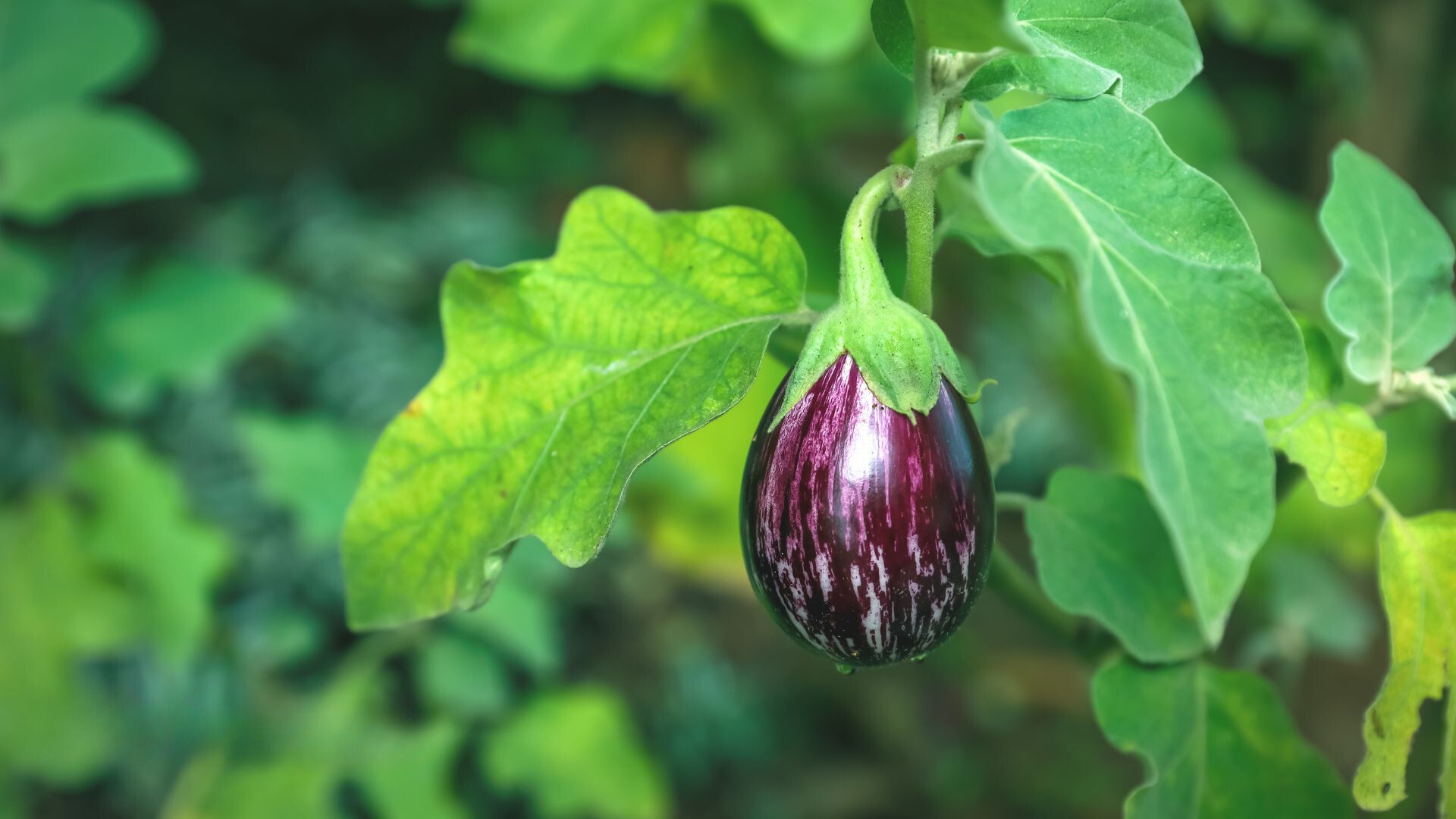Most often purple, the spongy and absorbent eggplant fruit carries a multitude of beneficial health properties against diabetes, hypertension, and metabolic syndrome. How to grow your own purple curing bundles? We cover all the steps and requirements for a successful eggplant cultivation in this series.
Fruit against metabolic syndrome
Eggplant Solanum melongena L. is a dicotyledonous plant of the nightshade family. Generally used as a vegetable in cooking, it is a berry by botanical definition. As a member of the genus Solanum, it is related to tomato, chili, and potato.
Its fruit is rich in phenolic compounds and antioxidant alkaloids with favorable effects on health. Thus, eggplant possesses various pharmacological effects, including antioxidant, antidiabetic, antihypertensive, and antihyperlipidemic, which has been supported by numerous investigations. In a recent scientific review(1), the effects of eggplant were evaluated on the metabolic syndrome (corresponds to the association of several disorders related to the presence of excess fat inside the belly) its complications including diabetes , hypertension blood pressure, hyperlipidemia and obesity.
According to the study, eggplant can control diabetes thanks to antioxidant properties and inhibition of α-amylase and α-glucosidase activity. In addition, eggplant exerts antihypertensive effect and protects against hyperlipidemia and obesity via induction of lipoprotein lipase activity and reduction of pancreatic lipase activity.
Solanum melongena L.
The eggplant plant is green, erect, bushy and can reach 2 meters in height. Its flowers are white to purple and its fruits can form in different shapes (including: ovoid, pear-shaped, spherical, cylindrical, and elongated) and several colors (yellow-white, purple, purplish, blackish).
Eggplant needs to be planted in sufficiently warm soil (air temperature of at least 20ºC). The slightest cold snap blocks the growth of the plant, while frost is fatal to it. Eggplant seedlings generally have needs a soil very rich in humus, fertile, fresh, deep, and slightly acid.
Soil preparation
Soil preparation is key to growing eggplant. The soil should be well plowed and fumigated. The irrigation system installed after plowing is used for fumigation which takes place as follows:
– Application of Organocid; A root stimulator that offers protection against nematodes. Authorized in organic farming. The application rate is up to 30 liters per dunum or 1000m2.
– Covering the ground with a plastic film specific to the fumigation process. This stage lasts for 30 days.
The next step is to incorporate the organic matter into the soil. A recommended product would be Italpolina at a rate of 200kg per dunum plus 100kg of Yara Hydro Complex 12 11 18 to be spread along the planting lines.
Cultivation of aubergines in the open field in Lebanon generally takes place in the spring. However, it can be adopted throughout the year in the case of planting in greenhouses.
When preparing eggplant plants, grain germination takes 8-11 days after sowing at 25ºC. Seedlings are usually ready 30 to 35 days after sowing, depending on climatic conditions.
Eggplant varieties
Negra F1 – Classic type
– Well suited to the Lebanese market
– Vigorous plant
– Highly marketable fruits in different weather conditions
– Uniform dark black fruits – large size
Dream F1 – Cylindrical type
– High productivity
– Uniform fruits
– Good white flesh quality
There are also local oval varieties that are predominately used in the production of traditional foods, especially makdous.


In the next part of this series, discover the main pests and issues affecting eggplant production.
References
1- Fatemeh Yarmohammadi, Mahboobeh Ghasemzadeh Rahbardar, Hossein Hosseinzadeh, “Effect of eggplant (Solanum melongena) on the metabolic syndrome: A review”, Iranian Journal of Basic Medical Sciences, November 15, 2020, p. 8 p.

